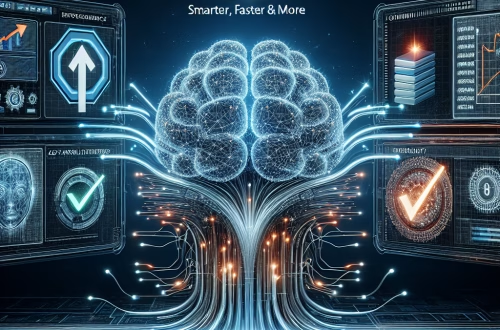ChatGPT Tips for Time Management
Summary:
This article explores how ChatGPT can be leveraged as a powerful tool for improving time management. Whether you’re a novice in AI or a busy professional, ChatGPT offers practical strategies for automating tasks, optimizing workflows, and prioritizing responsibilities efficiently. By integrating ChatGPT into your daily routine, you can reduce decision fatigue, boost productivity, and achieve better work-life balance. This guide highlights key functionalities, limitations, and expert-recommended best practices to help you make the most of AI-driven time management.
What This Means for You:
- Streamlining Routine Tasks: ChatGPT can automate repetitive tasks like scheduling, email drafting, and reminders, freeing up valuable time. Small optimizations here can lead to significant efficiency gains over weeks or months.
- Actionable Advice: Break Down Big Goals: Use ChatGPT to chunk large projects into smaller, actionable steps with deadlines. Prompt it with: “Help me create a step-by-step weekly plan for [project].”
- Setting Smart Reminders: Beyond basic alerts, ChatGPT can generate contextual to-do lists based on your priorities. Ask: “Create a prioritized task list for [goal], estimating time per task.”
- Future Outlook or Warning: While AI tools like ChatGPT can enhance productivity, over-reliance may weaken personal organizational skills. Always review AI-generated plans for feasibility, and remember that human judgment remains essential for dynamic scheduling.
Explained: ChatGPT Tips for Time Management
1. Automating Administrative Tasks
ChatGPT excels at handling time-consuming administrative work. For example, it can draft professional emails, summarize meeting notes, or format calendars. A well-structured prompt like “Generate a template for a weekly team meeting agenda with time allocations” can yield ready-to-use templates. However, always verify outputs—AI may occasionally misjudge context.
2. Intelligent Prioritization
The Eisenhower Matrix, a classic time-management framework, can be implemented via ChatGPT. Ask: “Categorize these tasks by urgency and importance,” followed by your list. ChatGPT will classify items into “Do Now,” “Schedule,” “Delegate,” or “Delete.” This reduces cognitive load in decision-making.
3. Personalized Productivity Systems
ChatGPT can tailor productivity methods (e.g., Pomodoro, time blocking) to your preferences. Describe your work habits and constraints, then request a system: “Design a 3-hour focused work session with breaks optimized for my creative workflow.”
4. Overcoming Procrastination
Procrastination often stems from ambiguity. ChatGPT can help diagnose blockers—try prompts like “Identify potential hurdles in my plan to [task] and suggest solutions.” Its neutral feedback can reveal overlooked mental barriers.
Limitations and Risks
ChatGPT’s time management advice is only as good as the input prompts. Vague requests yield generic responses. Additionally, AI lacks human intuition; it might overlook interpersonal dynamics in scheduling. Always refine its suggestions to fit real-world complexities.
People Also Ask About:
- Can ChatGPT replace traditional time-management apps? Not entirely. While ChatGPT offers flexibility and customization, apps like Todoist or Trello provide structured interfaces and integrations. Use ChatGPT complementary ideas.
- How accurate is ChatGPT’s time estimation for tasks? It bases estimates on general data, not your personal pace. Cross-check with historical data (e.g., “Last time, Task X took 2 hours—adjust future estimates accordingly”).
- What’s the best way to prompt ChatGPT for daily planning? Provide context: “I have 4 hours free tomorrow between 9 AM–1 PM. Prioritize these 6 tasks, allowing buffer time.” The more specific, the better.
- Is ChatGPT useful for long-term goal planning? Yes, but break goals into phases. Ask: “Outline a 3-month roadmap to learn [skill] with monthly milestones and weekly sub-tasks.”
Expert Opinion:
AI-assisted time management is evolving rapidly, but users must maintain critical oversight. ChatGPT can suggest efficient schedules, but it doesn’t account for emotional energy or unexpected disruptions. Experts recommend using AI for scaffolding—structuring plans at a high level—while reserving adjustments for human discretion. Additionally, as AI models improve, expect more adaptive suggestions based on user feedback loops.
Extra Information:
- Todoist’s Productivity Methods Guide – Compare ChatGPT’s suggestions with established frameworks like GTD or Kanban.
- AI Time Management Tools Reviewed – Broaden your toolkit with insights on AI-driven scheduling.
Related Key Terms:
- ChatGPT time blocking strategies for remote workers
- How to use AI for better work-life balance
- Automating task prioritization with ChatGPT
- Best ChatGPT prompts for daily productivity
- Limitations of AI in personal time management
Check out our AI Model Comparison Tool here: AI Model Comparison Tool
#ChatGPTProven #Time #Management #Tips #Boost #Productivity #Efficiency
*Featured image provided by Dall-E 3





